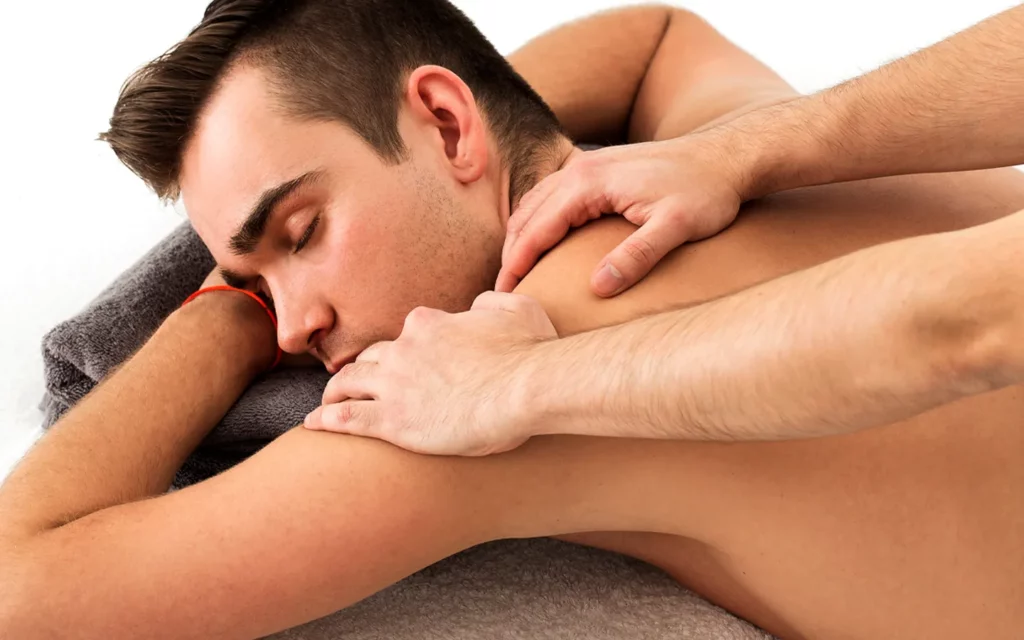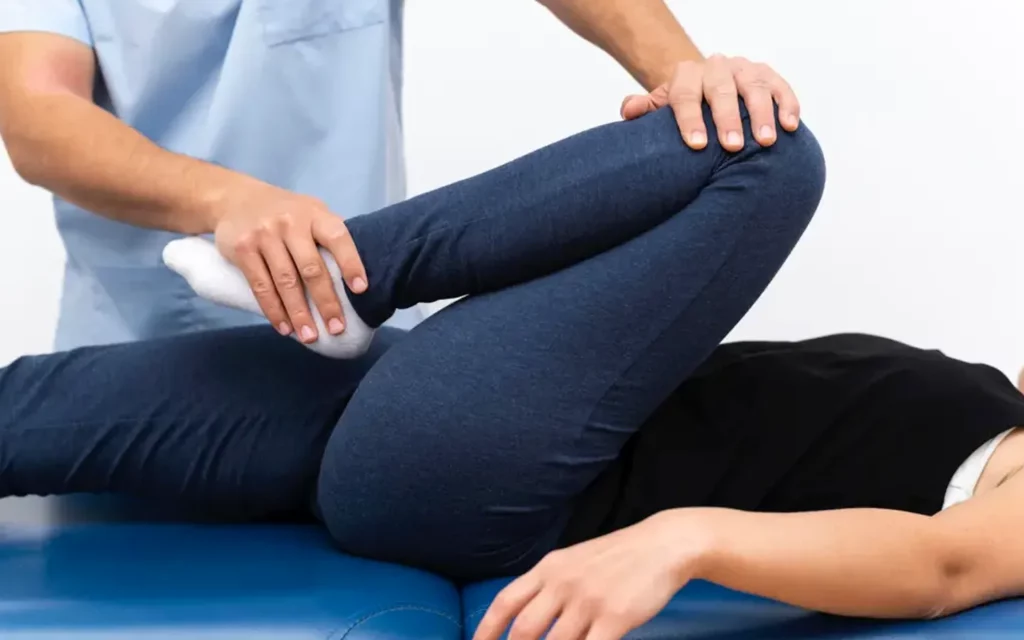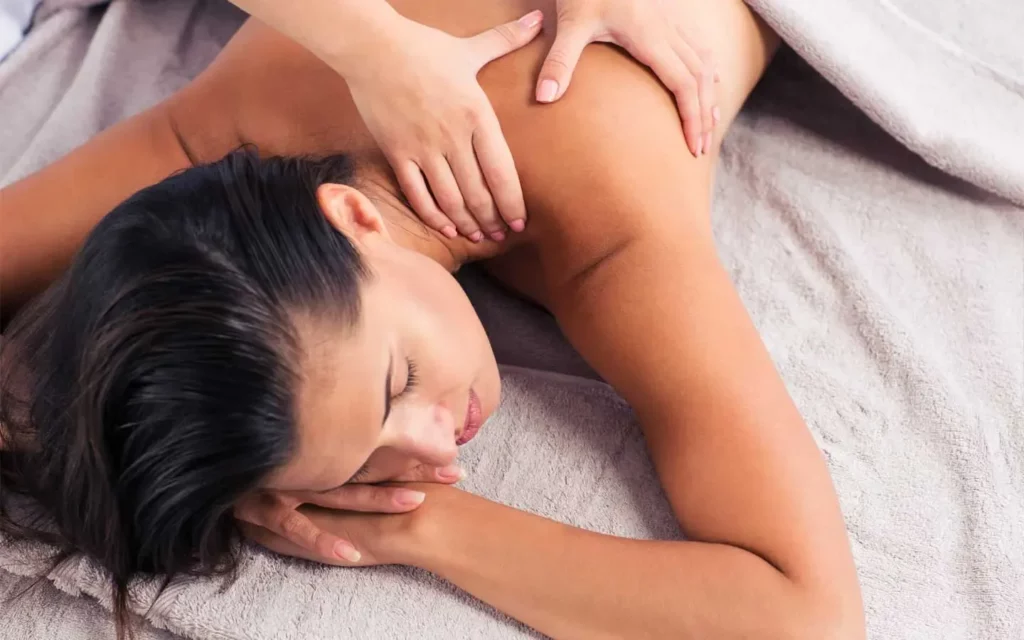Reading Time Approximately: minutes
Demand for massage therapists is rising in many countries. This trend is expected to continue in the coming years. The projected 10-year employment growth rate for massage therapists until 2028 is at 22% in the United States. The same is expected in other countries, especially Ireland which is said to be on what’s called a health and wellness revolution.
In 2017, the global wellness industry was estimated to be worth $4.2 trillion. Meanwhile, in Ireland, this sector is reported to be raking in €2 billion a year. Projections show that by 2020 the Irish wellness industry is going to be worth €2.3 billion.
The spa economy remains one of the leading reasons for the booming wellness industry worldwide with an expected annual growth rate of almost 6% from 2017 to 2021.
In Ireland, the salon and spa sector generates around €540 million a year, according to a 2017 report. It has also been stated that in the same year the number of salons and spas throughout Ireland was around 4000.
Why is there a growing interest in spas and wellness centres?
The primary driver for this growth is said to be people’s desire to lead a healthier lifestyle and live a longer life.
There is also the need to unwind and relax amidst the hustle and bustle of life. As the boundary between work and life gets blurrier, people are looking for ways to strike a balance between their personal and professional lives. This is where spas and massages come in.

In recent years, people have also discovered the therapeutic benefits of massages. It is not unusual nowadays for chronic pain sufferers to seek the help of neuromuscular therapists to relieve muscle-related aches, and holistic massage therapists for de-stressing and relaxation.
Medical experts have already declared chronic pain as a global health issue. Yearly, around 10% of the world’s population get diagnosed with this condition.
Global data show that back pain is the leading cause of chronic pain. This is no different in Ireland where many chronic pain sufferers deal with an aching back.
Based on the latest information, there are around 1.7 million Irish citizens diagnosed with chronic pain. Much like the global forecast, this number is expected to increase in the coming years. In line with this, experts anticipate that the need for neuromuscular therapy would rise as more sufferers look for protocols to complement the medical treatment they are undergoing.
Simply put:
The employment outlook for massage therapists and neuromuscular therapists in Ireland and other parts of the world is excellent. As long as you hold a respected and recognised qualification, you should not have a hard time earning a living in this field.
Aside from the numerous job opportunities, another good reason to pursue a career as a massage therapist is the earning potential.
Currently, data from Indeed Ireland show that the average hourly salary of a massage therapist is around €14.25. However, this can be much higher depending on the therapist’s qualification and experience. Those who pursue private practice may also earn more, especially since an hour of holistic massage now costs €60 while neuromuscular therapy is around €80.
It is also important to note that sky is the limit in terms of earning potential. Just like fitness instructors, massage therapists can choose the number of sessions they would have each week. This means the more sessions you have, the more money you’ll earn.
Furthermore, there are several career paths you can explore. There is this notion that, after finishing a massage course, graduates only have one option: work at a spa or wellness centre and offer relaxation massages.
This is NOT true!
As mentioned earlier, you can specialise in providing therapy that relieves chronic pain. This is what neuromuscular therapists do.
You can also become an orthopaedic massage therapist and work with athletes and sporting teams.
Basically, the career path you would be able to pursue depends on your qualifications, specifically the kind of massage course you finish.
So, make sure that you choose the massage course you are going to take wisely. Do some research on the different massage courses. Know what area you want to specialise in before you enrol.
A neuromuscular therapy (NMT) course is what you should take if you want to offer treatment for pain. Graduates of this course work with people who are suffering from acute or chronic pain and injury involving soft tissues and muscles.
An NMT course equips you with the knowledge and skills necessary to treat problems like back pain, muscular discomfort and even issues involving limited range of movement.
The goal in neuromuscular therapy is to eliminate the underlying cause of the pain or injury. More than just providing relief for sufferers, this therapy seeks to bring back the body’s normal neuromuscular integrity and balance.

Neuromuscular therapy is a science-based discipline. The techniques used here were developed with a thorough understanding of the human body.
Hence, an NMT course always includes an extensive lesson on human anatomy, particularly the whys and hows of body pain. It involves an in-depth discussion on the different bodily systems, specifically the central nervous system and myofascial system.
Once you finish an NMT course, you can offer therapeutic interventions to people dealing with soft tissue or muscle pain, dysfunction or injury. You have the option of starting your own private practice or joining a multi-disciplinary clinic.
Also referred to as orthopaedic massage therapy course, it is what’s recommended if you want to work with athletes.
An integral part of neuromuscular therapy, sports massage therapy focuses on the treatment and prevention of sports-related injuries. It also aims to improve the mobility of certain body parts.
Just like in an NMT course, an orthopaedic massage therapy course includes comprehensive lessons on the human body. Of course, the programme of study also covers techniques which can alleviate muscle tension and treat soft tissue or muscular dysfunction or injury. It also teaches massages that can accelerate muscle recovery which is very important amongst athletes.
If you finish a sports massage therapy course, you can join a sporting team and work as their therapist. Alternatively, you can set-up your own practice and work directly with athletes as their personal therapist.
Take a holistic massage course if your goal is to be able to provide holistic and relaxation massage.
What does this course cover? You are going to learn about full body massage techniques. This includes all the different parts of the body, from the head to the foot.
You can also expect lessons on human anatomy, specifically the systems in the body, and the importance of living a healthy lifestyle. In some courses, you’d also be taught how to handle clients (like how to properly communicate with them), how to conduct yourself and how to succeed in this profession.
Earning a certification in holistic massage enables you to work as a massage therapist in a spa or fitness centre. Just like neuromuscular and sports massage therapists, you can choose to offer your services directly to clients.

The three courses mentioned above are the most common entry-level massage therapy courses in Ireland.
Institutions like National Training Centre (NTC), Ireland’s top training provider, allow those without any existing qualifications to enrol in any of these of courses.
There are also advanced therapy courses being offered in Ireland like Higher Diploma in Neuromuscular Therapy and Sports Taping and Strapping. Often, these courses are open only to qualified professionals like doctors, neuromuscular therapists, sports massage therapists, chiropractors, etc.
So, if you finish any of the three courses mentioned above, you can take an advanced course if you wish to expand your knowledge and skillset and cater to more clients.
There are several institutions that offer massage courses in Ireland. However, please do not select the first course provider you find. Make sure you do your due diligence before enrolling. Do some research to ensure that you get what you want – the qualifications you need and high-quality training.
Below are some of the criteria you can use to determine where to take your massage therapy course:
Course Content
You do not enrol on a massage course simply to earn a certificate. You want to learn everything you need for you to be able to hit the ground running after finishing the course.
Hence, it is imperative that the course is a comprehensive one. It should cover all pertinent lessons to ensure that you gain the competencies necessary to become a successful therapist, be it the neuromuscular, orthopaedic or holistic type.
So, make sure you have an idea of the content of the course you intend to take. This is the best way for you to gauge if the training provider’s programme is going to be worth your time and money.
Nowadays, some institutions offer what’s popularly called a 2-in-1 course just like the National Training Centre’s Neuromuscular Therapy Course. This course’s content covers all relevant topics for both NMT and sports massage therapy. Hence, those who finish this course are qualified to be a neuromuscular therapist and a sports massage therapist.
As you review the course content, also try to know how the class is going to be conducted. It is important that the course is not just purely lectures or discussions. There should be practical or hands-on training as well.
Why?
You won’t be able to fully grasp massage techniques by listening to how they are done. You need to be able to do them yourself to learn how to properly position your hands/finger, how much pressure to apply, etc. After all, as they say, practice makes perfect.
Simply put:
Choose a training centre that offers high quality massage therapy courses. This is the only way to guarantee that you get exceptional training.
Reputation
Why should the training provider’s reputation matter? For one, it takes an excellent institution to develop top-calibre massage therapy courses and produce sought-after therapists. Employers like owners and managers of spas and fitness centres know this.
Here’s the deal:
Earning your qualification from a reputable institution can open doors for you. It can make it easier for you to land highly coveted jobs.
Take the case of our NMT graduates here at the National Training Centre. They get invited or wooed to apply at or join the top wellness centres in the country.
Why is this the case?
This is primarily because these companies know that experts in the industry are at the helm of NTC’s neuromuscular therapy course. Currently, our course director is John Sharkey who is an internationally known pain and injury expert.
Developed and implemented by only the best in the industry, our NMT course provides comprehensive training – the type that ensures our graduates are equipped with what they need to excel in this field. A testament to this is the fact that NTC has produced the country’s top neuromuscular therapists.
In addition to being well-designed, massage therapy courses offered by a reputable institution are often accredited.
Why is an accreditation important?
When a course is accredited by a known organisation, you are guaranteed that it meets the standards set by the industry leaders.
Furthermore, this means, once you finish the course, you earn the needed credentials to apply to jobs in Ireland and even out of the country.
What’s more?
You can even join reputable institutions which in turn can widen your exposure and open more opportunities for you.
For example, NTC’s Neuromuscular Therapy Course is accredited by the SMA, which is a trusted regulatory association in the UK for soft tissue therapists. Graduates of our NMT course can join the ANMPT. Members of this prestigious organisation are recognised by insurers like Laya Healthcare and Irish Life Health.
These insurance companies’ willingness to cover patients of our neuromuscular therapists is a testament to how good NTC’s courses are.
Being health insurer recognised also serves as an assurance to potential clients that they are in good hands.
Aside from having exemplary courses, a reputable training centre also ensures seamless processes, from start to finish. You can be certain that you won’t encounter unnecessary hassles as you finish the course.
Instructors
When choosing a massage therapy course provider, you should also take into consideration the training centre’s instructors or tutors.
Make sure that you take time to know who the instructors are for the massage therapy course you intend to take.
Remember:
If you want to be the best, you have to learn from the best!
Even if the training courses are accredited and well-designed, if the tutors are not good, the programme won’t meet its goal – that is to produce competent therapists.
Ideally, the tutors should be industry experts. They must have commendable qualifications, including years of experience in their respective fields. Of course, they should also be effective teachers.
Nowadays, some training providers readily provide information about their instructors. You can simply go to their website to find out who the tutors are and their corresponding qualifications.
Looking for the best massage courses in Ireland? We are the country’s trusted provider of massage courses – neuromuscular therapy (NMT), sports massage therapy and holistic massage therapy. Visit our website today or call us at 01 882 7777!